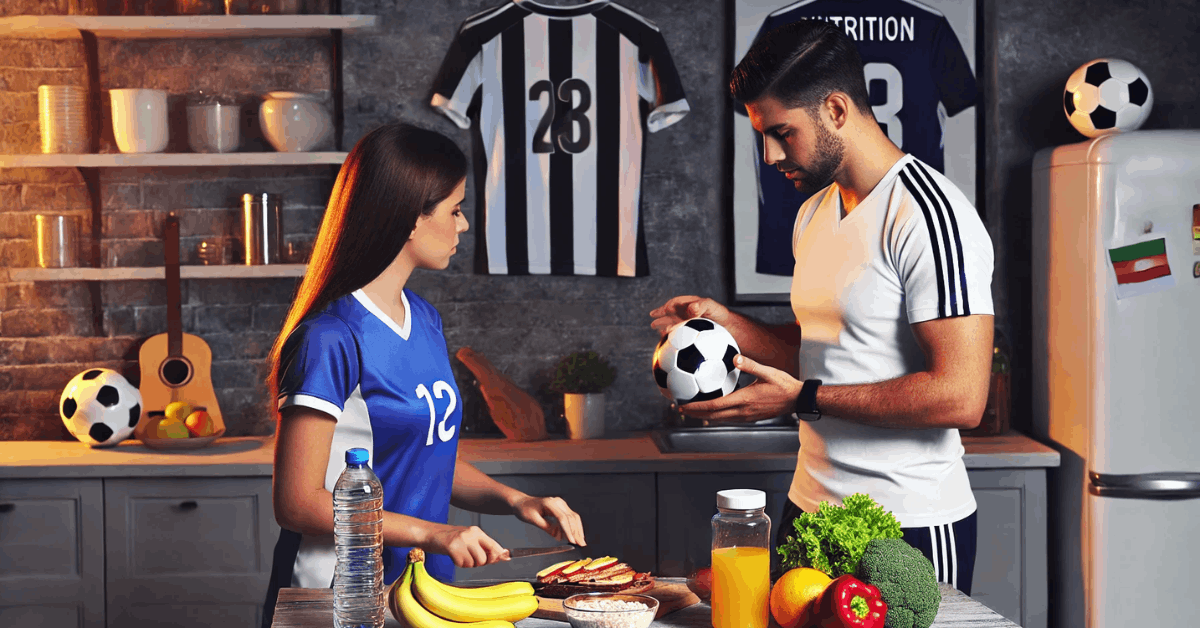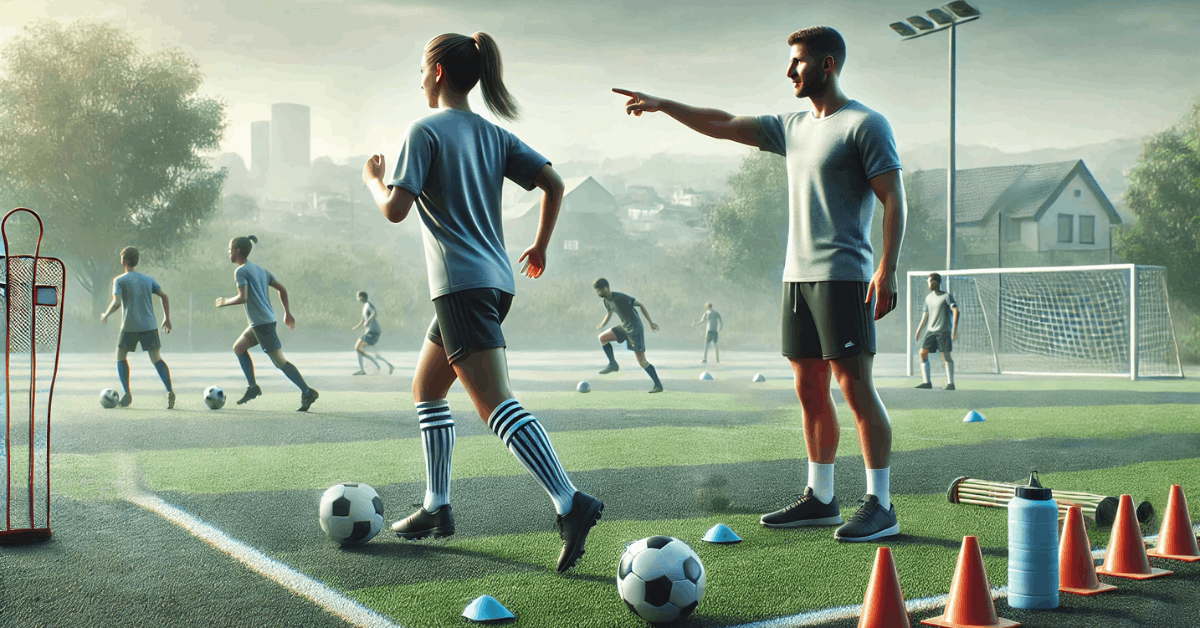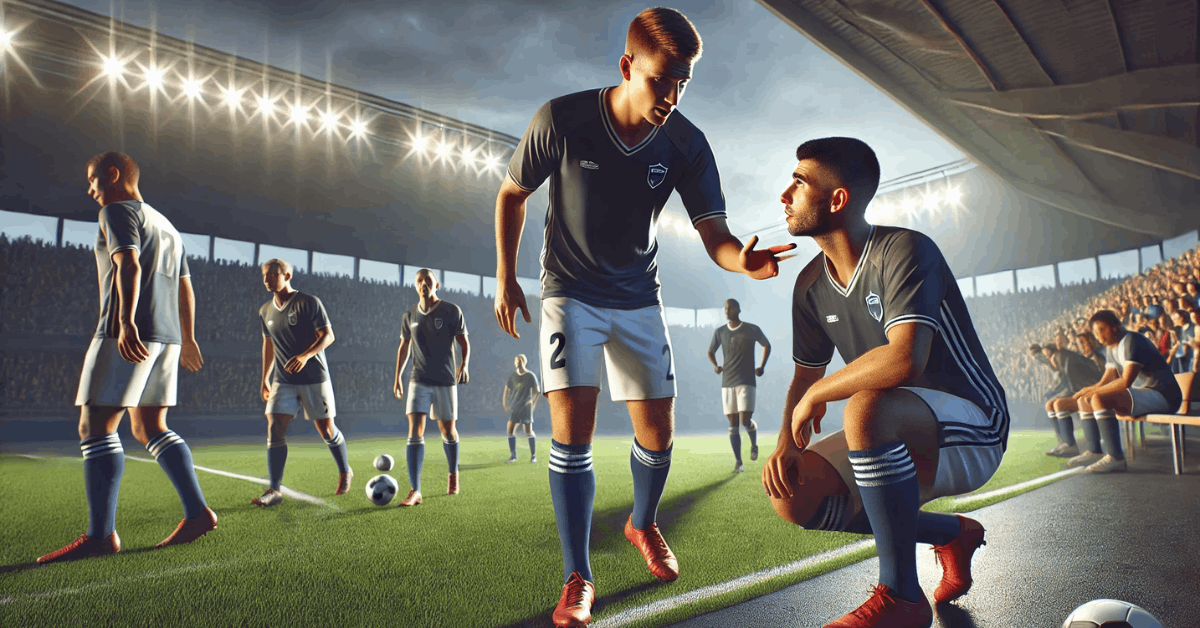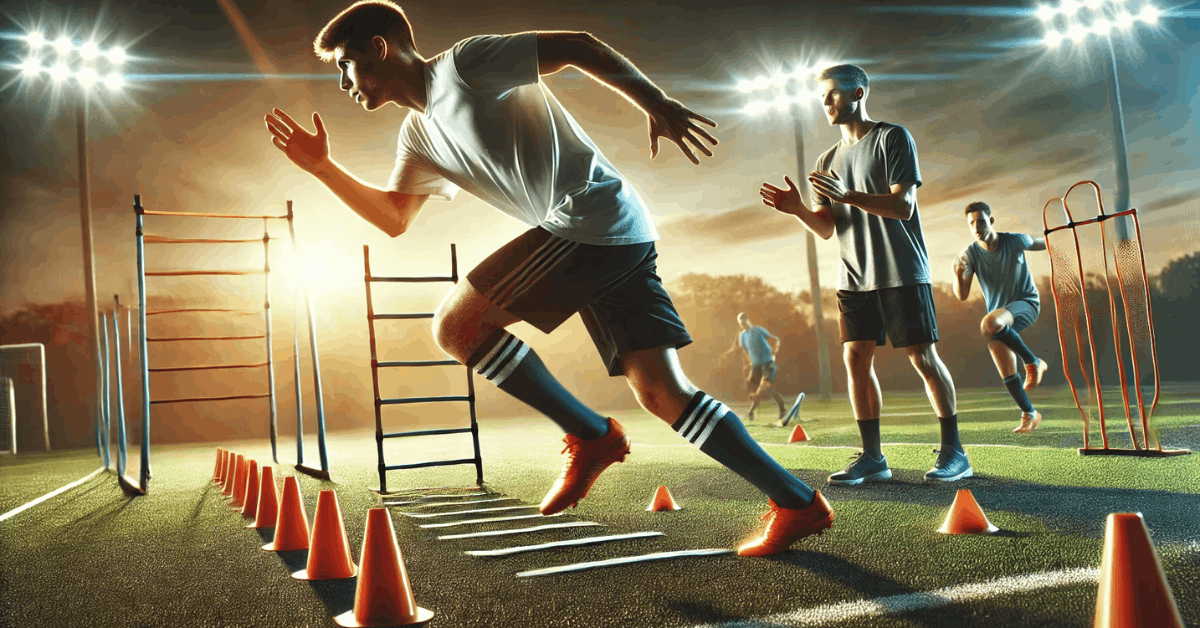
Soccer performance relies heavily on proper nutrition. This article breaks down what you should eat before, during, and after a match to maximize your energy and recovery.
A solid understanding of soccer nutrition can improve endurance and help you stay strong throughout the game. Learn the key foods and timing strategies to help you perform your best on the field.
Why Nutrition Matters for Players?
Proper nutrition keeps players fueled and strong throughout a match. Energy levels drop quickly without the right food, leading to fatigue and reduced performance. Eating well ensures muscles recover faster after games, preventing injury.
It also improves endurance, allowing athletes to maintain peak performance longer. A balanced diet keeps players focused and mentally sharp on the field. Simply put, it helps you play your best every time.
What to Eat Before a Match?
Eating before a game gives you the energy needed to perform well. The right food choices can improve stamina and keep you strong throughout the match.
Timing of Meals: Importance of Eating 3-4 Hours Before a Match
Eating at the right time helps your body digest and absorb energy properly. Here’s what you need to know about meal timing before a game:
- 3-4 hours before a match is the ideal window to eat.
- It allows enough time for digestion and avoids discomfort during the game.
- Eating too close to the match can cause bloating or cramps.
Meal Composition: High in Carbohydrates, Moderate Protein, Low Fat
The right balance of nutrients is critical to maintaining energy. Here’s how to structure your meals for optimal performance:
- Carbohydrates provide energy for the match.
- Moderate protein helps repair and maintain muscles.
- Low fat keeps digestion smooth and avoids any sluggishness during play.
Example Foods: Whole Grains, Lean Proteins, Vegetables
Choosing the right foods is essential for sustaining energy levels. Focus on these for your pre-match meal:
- Whole grains like rice or pasta for slow-burning carbs.
- Lean proteins such as chicken or fish to support muscle function.
- Vegetables add essential vitamins and minerals for overall health.
Pre-Match Snack: Light Snack 30-60 Minutes Before Playing
A light snack keeps your energy steady without overwhelming your digestive system. Stick to simple, easily digestible options:
- Bananas provide quick energy and potassium.
- Sports drinks hydrate and maintain electrolyte balance.
- Granola bars offer a mix of carbs and light protein.
What to Eat During a Match?
What you consume during the game affects your energy and focus. Staying hydrated and choosing the right snacks can help maintain peak performance.
Hydration: The Role of Water and Electrolyte-Rich Drinks
Staying hydrated is crucial in avoiding cramps and keeping energy levels up. Here’s what to focus on for proper hydration:
- Drink water regularly to keep you hydrated during the match.
- Use electrolyte-rich drinks to replace lost minerals.
- Avoid sugary drinks that can cause energy crashes later in the game.
Mid-Game Snacks: Small, Easily Digestible Carbs
Eating small, quick snacks during the match gives you a fast energy boost. These options are easy to digest and keep you energized:
- Energy gels provide immediate carbs for quick bursts of energy.
- Fruit-like oranges or bananas are light and refreshing.
- Sports drinks offer both hydration and a boost of carbs during play.
Avoidance: Foods High in Fat, Fiber, or Protein
Certain foods slow down digestion and should be avoided during the game. Here’s what to stay clear of:
- Avoid high-fat foods that can make you feel sluggish.
- Fiber-rich foods take longer to digest and can cause discomfort.
- Protein-heavy snacks aren’t ideal mid-game as they slow digestion.
What to Eat After a Match?
After the game, your body needs fuel to recover quickly. Eating the right foods helps restore energy and repair muscles.
Immediate Recovery: Carbohydrates and Protein Within 30 Minutes
Eating carbs and protein right after the match kick-starts your recovery. Here’s why it’s important:
- Carbohydrates replenish lost energy stores.
- Protein helps repair and build muscle.
- Consuming within 30 minutes speeds up the recovery process.
Example: Protein Shake with Fruit, Chocolate Milk, Sandwich with Lean Protein
These snacks are quick and easy to digest, providing the nutrients your body needs:
- Protein shakes with added fruit boost recovery quickly.
- Chocolate milk offers a great mix of carbs and protein.
- A sandwich with lean protein is convenient and practical for recovery.
Hydration: Replenishing Fluids with Water or Sports Drinks
Rehydrating after the match is essential to replace lost fluids. Here’s what to keep in mind:
- Water is critical to rehydrate and cool down the body.
- Sports drinks can help restore electrolytes lost through sweat.
- Avoid sugary drinks that don’t replenish crucial fluids and minerals.
Post-Match Meal: Balanced Meal 1-2 Hours After the Match
A balanced meal helps replenish energy and supports muscle recovery. Here’s what to focus on:
- Carbohydrates to restore energy levels.
- Protein for muscle repair.
- Healthy fats support overall recovery and provide long-lasting energy.
Example: Grilled Chicken, Quinoa, and Avocado Salad
A nutritious post-match meal ensures your body gets what it needs to recover fully:
- Grilled chicken provides lean protein for muscle repair.
- Quinoa gives slow-releasing carbs for energy.
- Avocado adds healthy fats that aid in recovery and energy storage.
Importance of Hydration
Staying hydrated before, during, and after a match is essential for your performance. Proper hydration helps keep your body energized and prevents fatigue.
Before the Match: Drink 500-600 ml of Water 2-3 Hours Before
Drinking water before a match ensures your body hydrates properly at game time. Here’s what to remember:
- 500-600 ml of water should be consumed 2-3 hours before the match.
- This ensures proper hydration without feeling too full.
- Avoid heavy drinks that could cause discomfort.
During the Match: Hydrate at Intervals, with Sports Drinks if Needed
Keeping hydrated during the game helps maintain energy and focus. Follow these tips:
- Drink small amounts of water at regular intervals during the game.
- Sports drinks can help replace electrolytes, especially during longer matches.
- Don’t wait until you feel thirsty—stay ahead of dehydration.
After the Match: Rehydrate with Water, Aiming for at Least 1.5 Liters
Post-match hydration is vital for recovery. Here’s what to do after the game:
- 1.5 liters of water is an excellent target for fully rehydrating.
- Sports drinks can help replenish lost electrolytes if needed.
- Avoid alcohol or caffeine, which can slow down rehydration.
Supplements and Additional Tips
Supplements can be useful, but it’s critical to focus on whole foods and plan meals around training. Here’s when to consider supplements and how to optimize your diet.
Creatine, Protein, and Electrolytes: When They Might Be Useful
Supplements can support recovery and performance in specific cases. Here’s how to use them:
- Creatine can help improve muscle recovery during intense training phases.
- Protein supplements are helpful when you need extra intake or can’t meet your needs through meals.
- Electrolytes are essential for long matches or high-sweat conditions.
Avoiding Unnecessary Supplements: Focus on Whole Foods
Whole foods should be the primary source of nutrients. Supplements aren’t always necessary:
- Whole foods provide a better balance of nutrients than supplements.
- Focus on a balanced diet with carbs, protein, and healthy fats.
- Supplements should fill gaps, not replace meals.
Meal Planning: Creating a Nutrition Plan for Training Days and Rest Days
Planning your meals ensures you’re fueling your body correctly for different days. Here’s how to plan around your training:
- Training days need higher carbs to fuel intense workouts.
- Rest days should focus on protein for recovery and less carb intake.
- Plan meals to avoid missing essential nutrients or over-relying on supplements.
Tips to Be a Healthy Player
Staying healthy as a player requires a mix of intelligent habits on and off the field. These tips will help you maintain your fitness and avoid injuries.
- Stay hydrated before, during, and after games to prevent cramps and fatigue.
- Focus on balanced meals with carbs, protein, and healthy fats to keep energy levels high.
- Make time for rest and recovery, including proper sleep, to allow your body to heal.
- Incorporate strength training to build muscle and improve endurance.
- Stretch regularly to maintain flexibility and reduce the risk of injury.
- Practice good posture during training to avoid unnecessary strain on your body.
- Listen to your body and take breaks when you feel overworked or tired.
- Cross-train with other sports to stay fit while avoiding repetitive muscle stress.
- Stay on top of mental health by managing stress and keeping a positive mindset.
- Warm up properly before games and training to prepare your muscles for action.
Wrapping Up Soccer Nutrition for Peak Performance
In conclusion, soccer nutrition is crucial in ensuring players perform at their best. Eating the right foods before, during, and after a match keeps energy levels high and supports recovery.
Hydration and nutrient timing are equally essential for overall performance. Players can maintain endurance and stay strong throughout every game by focusing on balanced meals and proper hydration.






